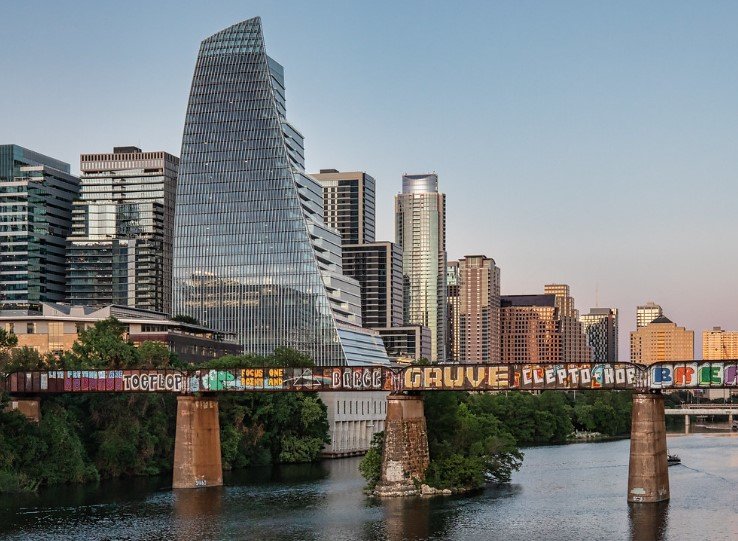Tech hiring in Texas, once the poster child for rapid growth, is now showing signs of slowing. Cities like Austin, Dallas, and Houston, which attracted some of the biggest names in tech, are seeing declines in job openings and startup activity, challenging the idea of Texas as the next Silicon Valley.
The excitement around Texas as a new tech hub hasn’t quite panned out the way many expected. The headline-grabbing moves of Tesla, Oracle, Chevron, and Charles Schwab relocating their headquarters here painted a rosy picture. But the numbers tell a different story: the tech employment sector in Texas is shrinking, and it’s not just a blip.
The Texas Tech Dream Meets Reality
Texas has long marketed itself as a business-friendly haven—low taxes, fewer regulations, and a climate that beckons companies from crowded coasts. This recipe lured not only giants but also a wave of startups and tech talent eager for fresh opportunities outside pricey cities like San Francisco or New York.
But recent reports show that the hiring spree is cooling off. Isabelle Bousquette of the Wall Street Journal points out that while tech hiring is down nationally, the slowdown is sharper in regional cities—Austin being a prime example. Unlike coastal cities that still enjoy relative stability, Texas’ tech scene is feeling the pinch harder.
Austin’s tech ecosystem had been booming for years. The downtown skyline, dotted with office towers for tech firms and startups alike, symbolized hope for a new powerhouse. But economic reality is pushing back. Fewer job postings, slowed startup growth, and cautious investment are becoming the new norm.

What’s Behind the Slowdown?
Several factors contribute to this pullback. For starters, the tech sector overall has been battling a rough patch. Economic uncertainty, rising interest rates, and cautious spending from consumers and businesses have tightened budgets everywhere.
Texas, with its rapid expansion, might be experiencing a natural correction. Growth fueled by hype and speculative investments doesn’t always last. The surge in tech jobs from a few years ago created expectations that may have overshot the actual demand.
Plus, some companies that moved to Texas in the past few years are pausing or trimming back plans. The cost of living in Austin, for example, has climbed sharply—partly because of its newfound tech fame—making it less of the bargain it once was. This may slow the influx of talent and startups, who seek affordability as much as opportunity.
Meanwhile, other tech hubs on the coasts, despite high prices, maintain advantages in deep talent pools, established networks, and access to capital. Texas still lags in these areas.
Numbers Tell the Story
Data from recent months confirm the trend:
| City | Tech Job Postings Decline (YoY) | Startup Funding Drop (%) | Average Tech Salaries Change |
|---|---|---|---|
| Austin | 15% | 20% | +3% |
| Dallas | 12% | 18% | +2% |
| Houston | 10% | 15% | +1% |
| San Francisco | 8% | 10% | +4% |
These stats highlight a sharper contraction in Texas compared to the established coastal giants, suggesting that while salaries are still inching up, fewer new jobs and reduced startup funding paint a sobering picture.
The Impact on Local Communities
The slowdown isn’t just about numbers on a spreadsheet—it affects real people. For tech workers who moved to Texas chasing new opportunities, fewer job openings mean more competition and uncertainty. For startups, less venture capital and a shrinking talent pool make survival tougher.
Local economies built around tech growth face ripple effects too. Businesses that serve tech workers—cafes, housing markets, service providers—may see declines or stagnation. Austin’s once red-hot real estate market, for example, is cooling after years of furious growth.
Texas’ reputation as a “Silicon Hills” hotspot will depend on how well it adapts. If companies and governments can find ways to stabilize growth, nurture local talent, and balance cost pressures, the region might still carve out a unique niche. But it’s clear that the simple equation of low taxes plus sunshine doesn’t guarantee endless tech prosperity.
What’s Next for Texas Tech?
The question on everyone’s mind: is this a temporary pause or the start of a longer downturn? Industry insiders suggest a mixed picture.
-
Some companies are using this moment to refocus on sustainable growth.
-
Others might double down on innovation to attract fresh investment.
-
Local policymakers may need to rethink incentives and infrastructure to retain talent.
Isabelle Bousquette warns that Texas tech will have to adjust expectations. “The boom days are behind us,” she says, “but there’s still room for growth if the ecosystem matures and becomes more resilient.”
It’s a reminder that the tech industry, like any other, runs in cycles. The Texas tech story is far from over—but the rosy picture painted just a few years ago is now taking on more shades.








